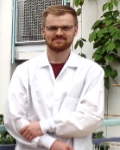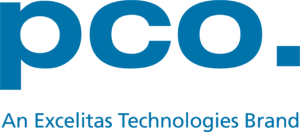Teams
Site will be continously updated

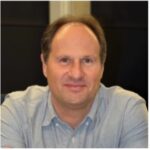
Thomas Huser is Coordinator of the EIC Pathfinder Open project DeLIVERY and the Lead for Work Package 2. He has been a Professor of Physics at Bielefeld University since 2011. Before joining Bielefeld University he was a professor in the Deaprtment of Internal Medicine and Chief Scientist for the NSF Center for Biophotonics at the University of California, Davis.
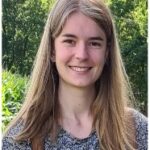
Jasmin Schürstedt is a second year Ph.D. candidate. She obtained her M.Sc. in Physics from Bielefeld University with a Master Thesis on Optical Projection Tomography. She is utilizing and developing structured illumination microscopy methods towards the study of living LSEC.
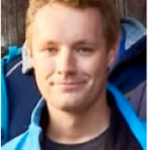
Henning Ortkraß is a third year Ph.D. candidate. He obtained his M.Sc. in Physics from Bielefeld University with a Master Thesis on the application of optically trapped polystyrene beads for single molecule tracking. He is developing novel implementations of structured illumination microscopy, e.g. more light-efficient versions with enhanced field-of-view for the study of LSEC.
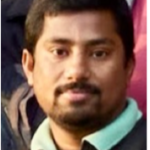
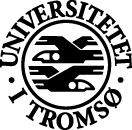

Peter McCourt is a Professor in the Department of Medical Biology at UiT, The Arctic University of Norway. Peter is teaching Biochemistry to Medical Laboratory Scientists and to Dental Nurses. He also supervises a number of PhD and MSc students. His current research involves developing super-resolution optical methods (SIM and dSTORM) for the study of liver sinusoidal endothelial cell (LSEC) fenestrations, and how they change with ageing. He is also studying endocytic processes in LSEC, and in their “cousins”, bone-marrow sinusoidal endothelial cells.
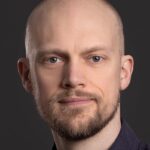
Erik Sveberg Dietrichs is Associate Professor and head of the Experimental and Clinical Pharmacology Research Group at UiT, The Arctic University of Norway. He is also consultant physician at the Center for Psychopharmacology at Diakonhjemmet Hospital, Oslo, Norway. He has won several prizes and scholarships for disseminating science. Peter and Erik jointly lead work package 4, “New refenestration, anti-fibrosis therapies, and polypharmacy approaches”, of the DeLIVERY project.

Karolina Szafranska is a postdoctoral researcher in the Vascular Biology Research Group at UiT, The Arctic University of Norway. She has a multidisciplinary background stretching between Biology, Biophysics and Physics. Her current work focuses on Liver Sinusoidal Endothelial Cells (LSECs) and other hepatic cells and the application of different types of microscopy for the study of cell morphology, especially liver fenestrations.
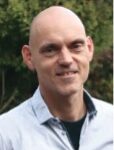
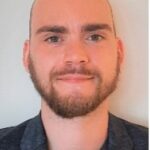
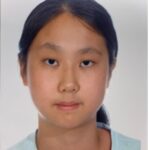

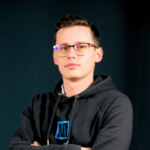
Jean-robin Peiteado is currently Mechatronics Project Manager at Cherry Biotech, in charge of continuing the development of the Microphisiological Systems (MPS), different CubiX models, software and conducting research in the MPS control systems governing algorithms. He obtained his mechanical engineering and interactive design degree in Polytech Montpellier in 2020.Previously working as a mainframe software developer at Sopra Steria Banking.
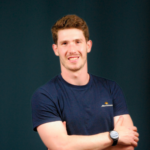
Alberto Ortega is the Responsible for Production, Industrialization and After-sales Service Manager at Cherry Biotech. He obtained his MSc. in Electromechanical Engineering from Polytechnic University of Madrid. He’s currently working on the development of new solutions and the industrialization of the micro physiological system and associated microfluidics. Before joining Cherry Biotech he worked on the development and industrialization of biotechnological prototypes meant to purify air & sterilize objects using non-thermal atmospheric plasma.
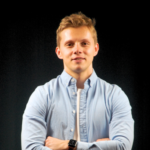
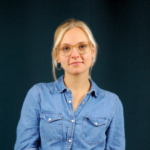
Mathilde Cadoux works as Immunologist Project Manager at Cherry Biotech and focuses on developing immunocompetent MPS, including a liver model to assess drug hepatotoxicity in vitro. Mathilde completed her PhD on Immunology at the Université de Paris where she studied immunosurveillance mechanisms in hepatocellular carcinoma. She then focused her research during her Post-Doc on the role of macrophages during liver fibrosis and regeneration.
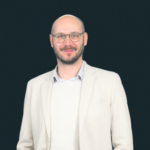
Pierre Gaudriault is a PharmD and PhD in toxicology, currently a Late founder and Scientific Chief Business Developer of Cherry Biotech. Pierre has over the course of his PhD authored 4 peer reviewed papers and during his career in Cherry Biotech, 2 additional peer reviewed paper and a book chapter. His has a strong expertise in human physiology, toxicology, organ on chip, business development and analytics.
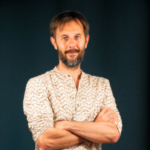
Dario Fassini joined Cherry Biotech since 2017. Initially granted a MSCA-IF he became fascinated by bridging cutting edge science and market needs. Since then, he continued his mission at Cherry Biotech, currently responsible for the biological facilities and the development of biological models based on the different CubiX platforms. He is coauthor of several peer review publications and participated in several national and international conferences.
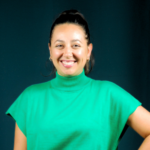
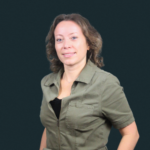
Chloe Porcier joined Cherry Biotech in September 2022 and is currently working as Chief Human Resources. She has a master’s degree in business administration (MBA) with a specialization in Human Resources. Before joining Cherry Biotech, she worked for 10 years for a large French company in the Insurance, Banking and Assistance industries. She had various HR positions, sometimes in big entities but also in small ones, most of the time with an international exposure.
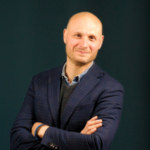
Jérémy Cramer started his professional career in 2003 in the automotive industry. Entrepreneur since his youth, and engineer by training, he completed a PhD thesis in 2012 combining microfluidic instrumentation and biomedical research. He founded Cherry Biotech in 2014, based on the conviction that his team could solve one of the biggest challenges of the pharmaceutical and biomedical industry, improve the prediction of toxicological effects on the human body and replace animal testing, by combining organ on chip, multiOmic and machine learning technologies.
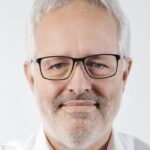
Dr. Gerhard Holst, Senior Imaging Product & Application Scientist, Excelitas PCO GmbH, Kelheim, Germany. Gerhard Holst graduated at the Technical University Aachen, Germany, with a Diploma in Electrical Engineering in 1991 (Information Technology) and went on to complete his Doctorate at the University of Dortmund in collaboration with the Max-Planck-Institute for Systemphysiology in Dortmund, Germany from 1991 – 1994. Mr. Holst furthered his research as member of the Microsensor Research Group at the Max-Planck-Institute for Marine Microbiology in Bremen, Germany from 1994 – 2001. From 2001 – 2021 he was head of the research & science department at PCO AG, where he was responsible for new technologies, all research and sensor projects, like the development of sCMOS image sensors. Since the acquisition by Excelitas in 2021 Mr. Holst is responsible for ongoing research grants and product manager.
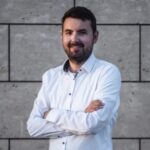
Lucas Hopf, Development Engineer, Excelitas PCO GmbH, Kelheim, Germany.
Lucas Hop has studied physics for bachelor’s degree at the Technical University of Munich (TUM) from October 2017 until August 2020. He then followed studying physics for the master’s degree with a focus on nuclear and particle physics also at the TUM until January 2023. Since April 2023 he is working as a development engineer at Excelitas PCO GmbH.

Peter Rappl graduated as electrical engineer in 1994 but already joined PCO AG in 1992 as design engineer for electronics, thermal management and electro optical test equipment construction. Since 1995 he is digital image sensor specialist and took over responsibility of the Quality Assurance group of PCO in 2018.
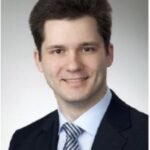
Thomas Öller, Product Development – Quality Assurance, Excelitas PCO GmbH, Kelheim, Germany. From May 2011 to February 2015 Thomas Öller studied physics for his bachelor’s degree at the University of Regensburg and continued for the master’s degree with a focus on ferromagnetic resonance and spin currents at the same university until March 2018. Since May 2019 he is working as a development engineer in the quality assurance team at Excelitas PCO GmbH.

Tina Äpler, Quality Assurance Engineer, Excelitas PCO GmbH, Kelheim, Germany. Tina Äpler studied Sensor Technology and Analytics from 2017 to 2022 and joined the Quality Assurance team of Excelitas PCO in February 2023.

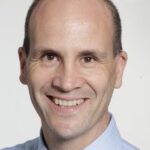
Jan Schulte am Esch is Professor for General and Visceral Surgery – liver and tumor biology – in the Medical Faculty at Bielefeld University. Since 2016, he is Chief of Surgery and Director of the Clinic for General and Visceral Surgery at the Protestant Hospital Bethel (EvKB) in Bielefeld. His clinical focus includes oncological general and visceral surgery, robotic visceral surgery, and benign and malignant diseases of the liver and pancreas.
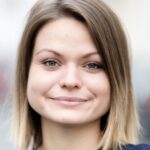
Annika Kiel is a postdoctoral researcher in the Medical Faculty at Bielefeld University. She obtained her Ph.D. in biology from the Biology Faculty at Bielefeld University in 2023. She is developing protocols for the isolation of living liver sinusoidal endothelial cells from liver biopsies and is working on methods to maintain cells and liver sections over extended periods of time.

